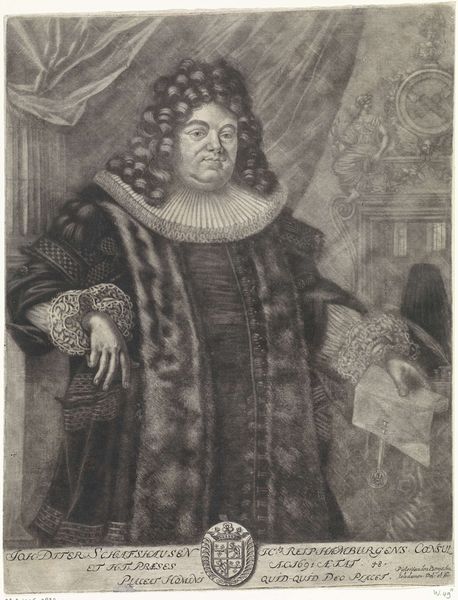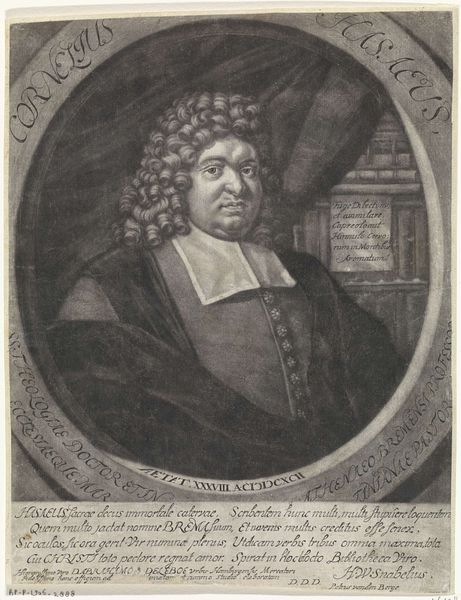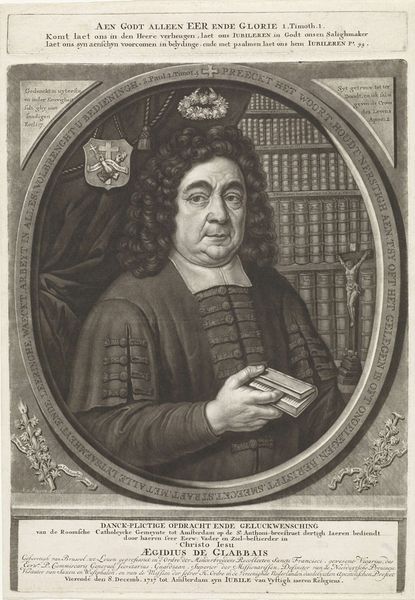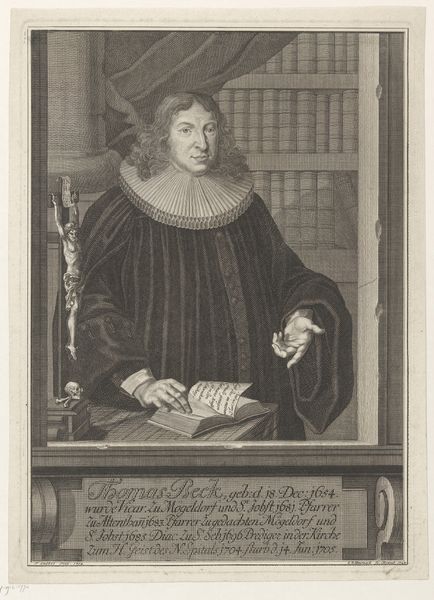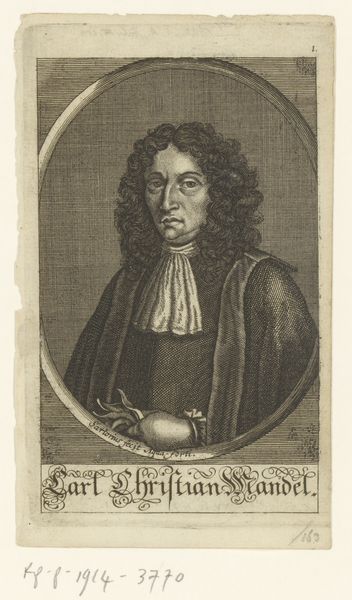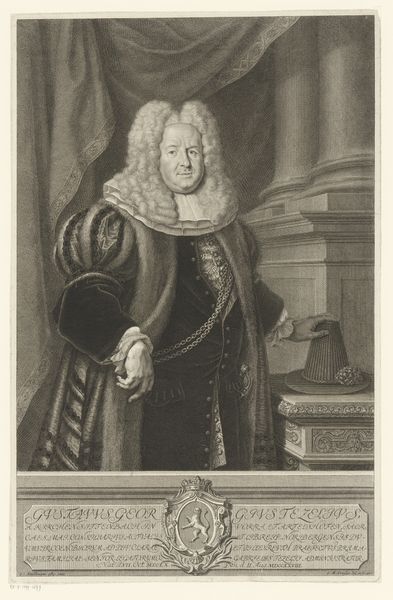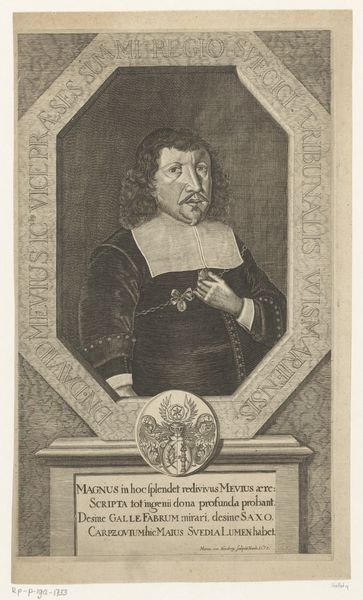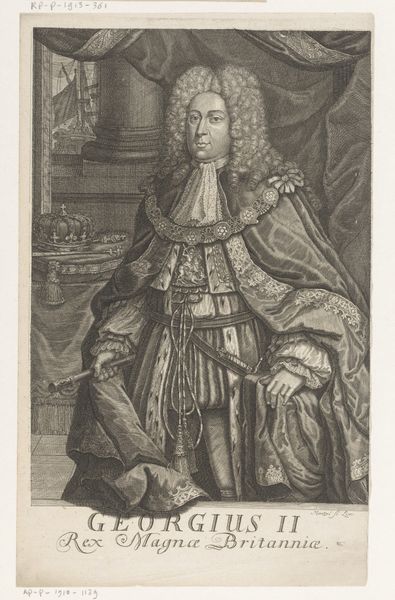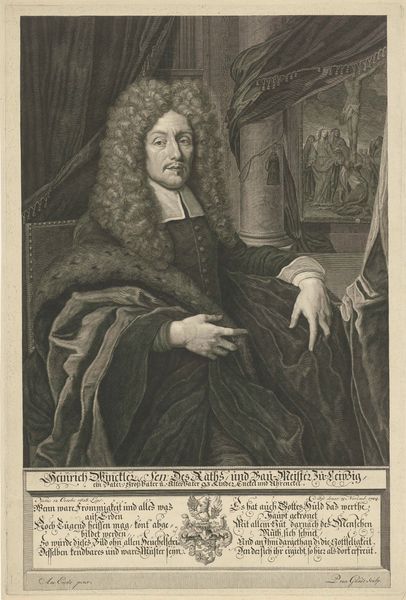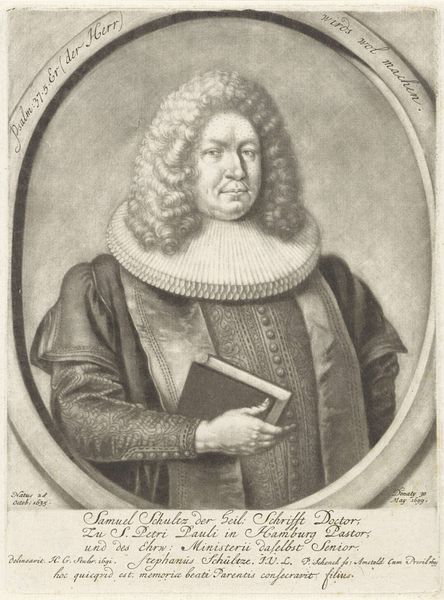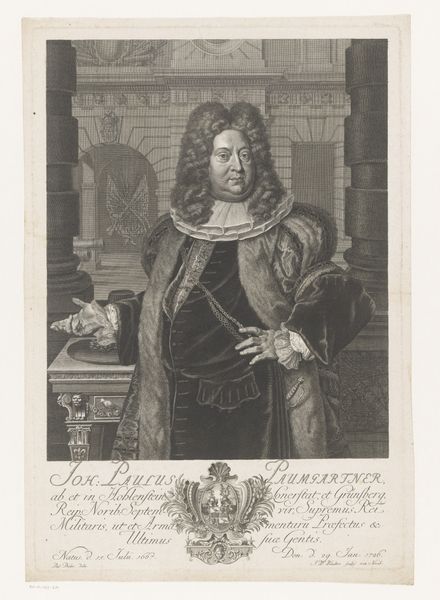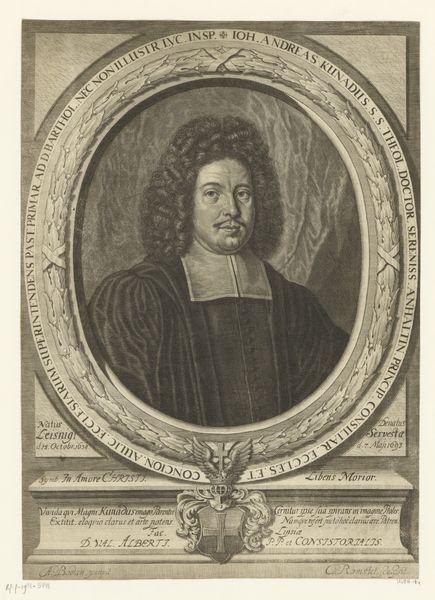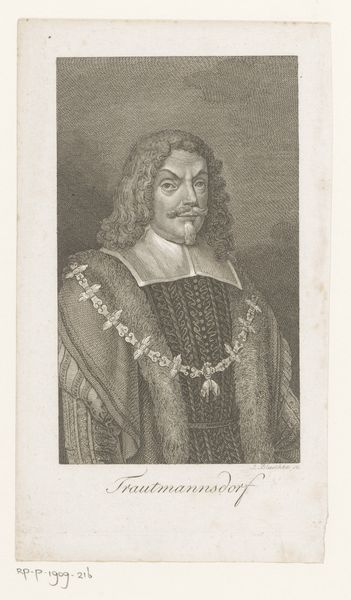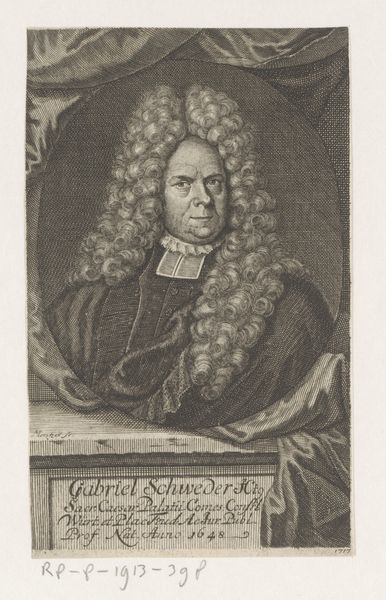
engraving
#
portrait
#
baroque
#
portrait drawing
#
history-painting
#
engraving
Dimensions: height 314 mm, width 242 mm
Copyright: Rijks Museum: Open Domain
Curator: Immediately, I'm struck by a sense of theatrical heaviness—all those textures pressed into grayscale. It feels opulent and confining, somehow. Editor: Indeed. This is "Portret van Johann Dietrich Schaffhausen," an engraving created in 1691 by Pieter van den Berge. You can find it here at the Rijksmuseum. Its style reflects the Baroque period, doesn’t it? With its ornate detail and sense of drama? Curator: Absolutely. It’s so relentlessly detailed that it verges on the grotesque. Look at that ruff, or the folds in his fur-lined robe. They aren't just descriptive; they communicate status and power in a somewhat smothering way, almost like armor. And that knowing smirk! What do you think the story is here? Editor: The composition employs a strong diagonal axis, guiding the eye from the top left, with its dramatically draped curtain, to the bottom right, where the sitter’s hand firmly grasps a document, which may represent a charter or grant. This linearity emphasizes his position within a system, his importance reinforced by heraldic symbolism. The whole is framed by decorative, architectural elements. Curator: So, not just portraiture, but historical staging. His face, though, almost gets lost in the elaborate attire. There’s a real tension between the desire to impress and a vulnerability that slips through despite it all. I’d almost say you can feel what it was like to live in that time period. Editor: You touch upon a vital point about Baroque portraiture. The aim wasn't only likeness but the embodiment of specific virtues, power structures and personal narratives. Think of that column detail and sculptural form that almost echoes him in marble. It signifies a certain kind of permanence that can easily seem antiquated, and it may be easy to see some anachronism to all of that even in its own time period. It invites our introspection, after all, and perhaps makes that all but necessary. Curator: An apt summary! Thank you. Editor: The pleasure was mine. I hadn’t noticed those sculptural details until you pushed us there.
Comments
No comments
Be the first to comment and join the conversation on the ultimate creative platform.
